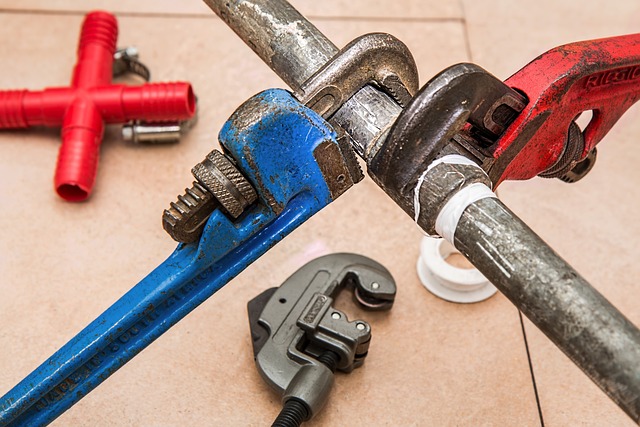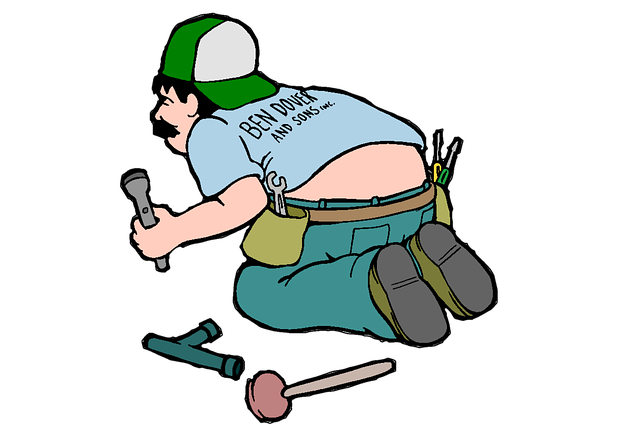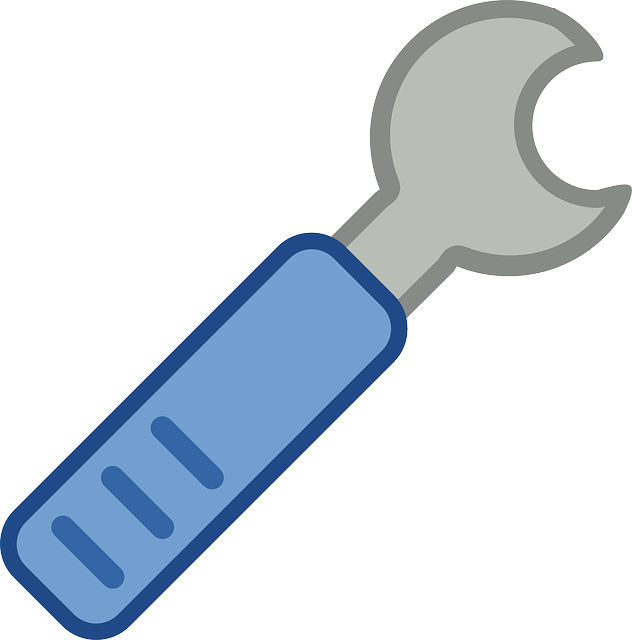When your garbage disposal stops working, understanding its parts like the flywheel, impeller blades, shredding ring, and grinding chamber is essential for effective troubleshooting. Regular cleaning with baking soda and hot water helps prevent issues. If you encounter a problem, start by safely resetting the unit if it's humming without turning. Clogs or jams often cause malfunctions, which might require a professional plumber's tools to resolve safely. For routine maintenance or complex repairs, it's wise to hire a licensed plumber to ensure your disposal operates efficiently and lasts longer. Always consult the user manual or online resources for specific model details, and remember that proper usage includes grinding only safe materials with running water. Regular vinegar and baking soda cleaning can maintain optimal performance and prevent future problems.
Restoring your garbage disposal to its smooth-operating state is a straightforward task with the right knowledge and precautions. Whether you’re facing clogs, strange noises, leaks, or odors, understanding your garbage disposal mechanism and common issues can empower you to tackle these problems head-on. This comprehensive guide covers everything from safety measures to step-by-step repair techniques, ensuring you can maintain your system effectively without the need for immediate professional intervention unless necessary. With practical advice on clearing clogs, troubleshooting noises, fixing leaks, and eliminating odors, along with maintenance tips for long-term health, you’ll be equipped to handle any garbage disposal challenge. Remember, when in doubt or dealing with persistent issues, a professional plumber is your best resource to ensure safety and compliance with standards.
Understanding Your Garbage Disposal Mechanism

When encountering issues with your garbage disposal, a fundamental step toward restoring its smooth operation is understanding its mechanism. At the heart of every garbage disposal lies a rotating impeller assembly powered by an electric motor. This assembly grinds food waste into smaller particles that can easily pass through the plumbing system. To effectively troubleshoot and repair your unit, familiarize yourself with its components: the flywheel, the impeller blades, the shredding ring, and the grinding chamber. The flywheel is connected to the motor and drives the impeller blades, which in turn push food against the shredding ring, breaking it down further. The finer these particles become, the more efficiently your garbage disposal will function.
For a thorough understanding of your garbage disposal’s mechanism, consult the user manual or refer to online resources for diagrams and descriptions of the specific model you own. This knowledge is invaluable when it comes to DIY maintenance or if you decide to call a professional plumber. A plumber can accurately diagnose any issues, such as jammed blades or a motor that won’t start, and perform necessary repairs or replacements. Regular maintenance, such as clearing debris after each use and using a mixture of hot water and baking soda to clean the unit, can prevent many common problems. Understanding the inner workings of your garbage disposal equips you with the knowledge needed to resolve issues promptly, ensuring it operates efficiently and prolonging its lifespan.
Common Issues with Garbage Disposals

When a garbage disposal malfunctions, it can lead to a host of problems that may require the expertise of a professional plumber. Common issues with garbage disposals often stem from foreign objects being introduced into the system, which can jam the blades or damage the motor. Food particles, utensils, or even hand debris should never be forced down the disposal. Another frequent problem is the accumulation of organic waste that gradually hardens, causing a clog over time. Regular maintenance, including cleaning with a mixture of ice and citrus fruits to clear any residue, can prevent these blockages. Additionally, homeowners may encounter drain odors emanating from the disposal, which can be mitigated by grinding a few cups of vinegar or baking soda with hot water to neutralize the odors. If a garbage disposal hums but won’t turn, it could indicate an issue with the unit’s circuit or a jammed object that requires prompt attention from a plumber. It’s also common for disposals to leak, which can be due to improper installation, worn out mounting rings, or a deteriorated flange. Addressing these leaks promptly is essential to prevent water damage and maintain the integrity of the unit. Homeowners should be cautious when attempting to troubleshoot or repair their garbage disposals, as some issues may escalate without proper knowledge and tools. In such cases, consulting a licensed plumber is the best course of action to ensure the disposal is repaired safely and effectively, restoring smooth operation.
– Clogs and Jams

When encountering issues with your garbage disposal, clogs and jams are often at the heart of the problem. These blockages can stem from a variety of materials that should never be disposed of down the drain, such as fibrous vegetables, fruit peels, grease, or any non-grindable substances. To address clogs and jams effectively, it’s advisable to first attempt to reset the disposal by unplugging it from the power source, pressing the reset button located at the bottom of the unit, and then plugging it back in. If this doesn’t resolve the issue, a professional plumber should be consulted. A plumber can safely remove obstructions using tools designed for such tasks, minimizing the risk of injury or further damage to the disposal. It’s important to use your garbage disposal responsibly by only grinding safe items like small bone fragments or eggshells, and running water before and after grinding to lubricate and flush out the waste. Regular maintenance, including cleaning the disposal with a mixture of vinegar and baking soda, can prevent future clogs and jams, ensuring your garbage disposal operates smoothly for years to come.
When encountering issues with your garbage disposal, such as clogs or jams, it’s crucial to address them promptly to maintain a functional kitchen. Understanding the mechanism of your unit can help you troubleshoot effectively, often resolving these issues without the need for professional assistance. However, if challenges arise that exceed your DIY skills, hiring a plumber is the best course of action. They possess the expertise and tools necessary to restore smooth operation swiftly, ensuring your garbage disposal operates efficiently once more. With proper maintenance and timely repairs, you can keep this indispensable kitchen appliance in top condition.
